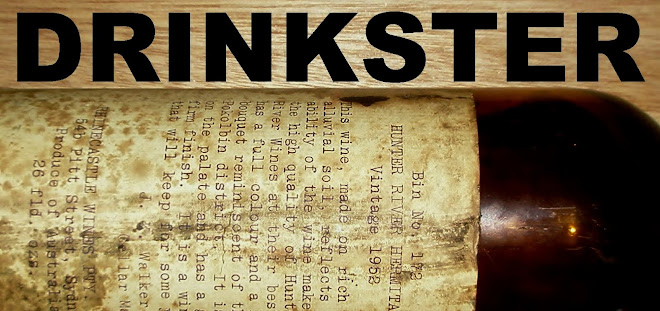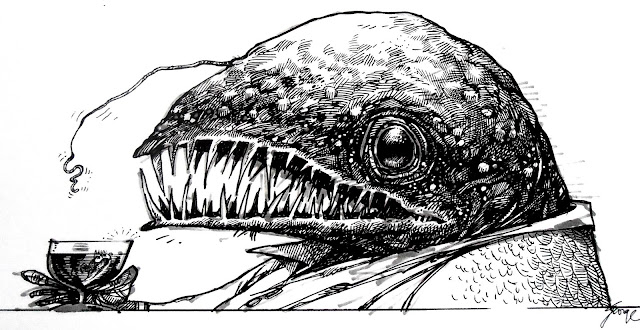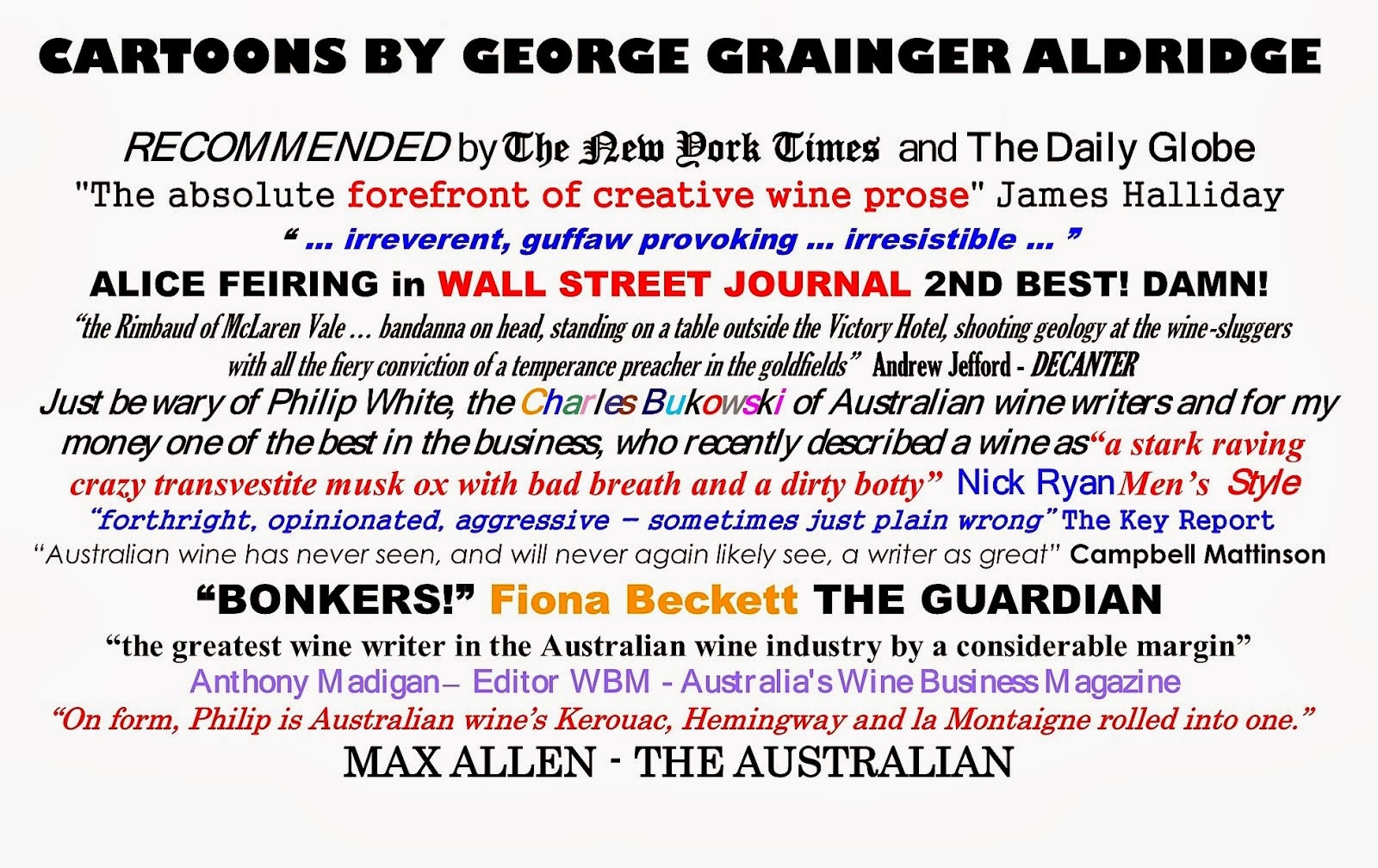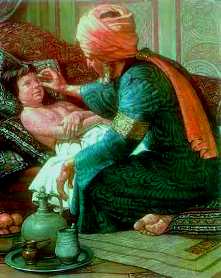22 November 2008
NOTHING LIKE A KNOCK ON THE HEAD
by PHILIP WHITE - This was published in The Independent Weekly on 14 NOV 08
Great week for thirst. Must have been that knock on the head. One minute I’m making a speech to a restaurant full of people about the wonders of Frank and Rosie Baldasso’s Protero wines, grown on the ridge between Gumeracha and Lobethal, and the next I’m regaining consciousness with a lovely blonde ambo asking are you still with us, Mr. White. Nice pink smudge of blood and hair on the wall at my head.
Having experience in these matters, I believe I woke demanding to know who’d hit me.
After an audacious and stunning repast in the Greedy Goose, 10/10, I’d attempted to stand, and with my slydexia and everything, got my chair caught in the carpet and went arse-up, headlong onto a brick window sill. Out cold. Years of painstaking back recuperation suddenly put back, well, years. And people think this job is easy.
Funny things, restaurants. The main reason for my need for recuperation was a restaurant. Auge. Or the blokes it had in it. Gary Steele, the ex-SAS Burgundy shipper of Domaine Wine Shippers, wanted me to take dinner with him and Roman Bratasiuk, the Institute of Medical and Veterinary Science refugee who after many, many long lunches and a swillion beers in The Exeter, escaped government service to make a few feral wines vaguely after the style of his Balkan brethren, which of course attracted the attention of Robert Parker Jr. and eventually earned young Roman a scarlet Ferrari on his Clarendon Hills account. Steele arranged the dinner to patch up any misunderstandings I might have had with Bratasuik, but picked me up for a cuddle and fell on top of me. I knew that was gonna take a long time to heal before I even hit the floor. Gary is about 6'5" and 22 stone.
Bratasiuk is not my friend. He sells his wine through Steele and buys his Bordeaux and Burgundy from Steele. Steele is my friend. He would probably be a closer friend if I had enough of the Clarendon Hills money to buy Bordeaux and Burgundy from him.
But that was another restaurant, another time, and by the Protero dinner, I had almost repaired.
During a moist, confused epoch which might politely be called this, my most recent recuperation, I dreamed I heard Barack Obama claiming victory in the American elections. I thought I heard Laurie Oakes saying he’d written a book, and an Irishman saying the track was too hard for poor old Septimus. Something about the Reserve Bank. Dudley Brown, of Inkwell vineyard, loomed distortedly, claiming he’d won the Melbourne Cup sweep and that he hadn’t left the Republican Party; it had left him. There were thirteen wood ducks on the lawn. And then, through the whiskied mists of concussion, Paul Holloway said there would be no more housing in the wine regions of Barossa and McLaren Vale.
“Because the Barossa Valley and McLaren Vale are important economic areas of the state”, I dreamed I heard him say, “because they’re wine regions, also significant tourism regions, it would not make sense to have urban encroachment to a significant extent into those areas. So we’ll avoid those areas and the areas that we’ll be looking at for future expansion are those areas where there’ll be less impact on the important tourism and economic areas. So yes we do recognise those areas but look it’s simple common sense: why would you want to encroach on areas that are important to the economy because of the significant contribution that they make to the state’s economy through the wine industry and the tourism industry? Clearly that would be put at threat if we allowed rampant urban development within those areas.”
Clearly. Leaving the Barossa bit out for the moment - I’ll write about that end of the see-saw once my head has cleared and I’ve been up for a chat with the leading locals - the implications for McLaren Vale are enough for now. There’d been a stand-off for months, as rumours of government relaxing development restrictions on the key villages of the Willunga Basin had developers rattling their bulldozer keys and winegrowers panicking keenly about the value of their vineyards.
The main street of McLaren Vale is a developer’s breakfast. The tractor dealership on the corner of the main street and the Kangarilla Road has shut, so there’s another golden opportunity to make a mess. The ribbon development to McLaren Flat grows like cancer; the latter village is malignantly busting its boundaries. Willunga: ditto. More houses? Rather have a hole in the head.
Not to mention the little matters of the prospective Bowering Hill development – the last chance for the Vales vineyards and agriculture to actually reach the gulf St Vincent, patron of viticulturers - and Glenthorne Farm, O’Halloran Hill, on which the University wants to plant 1,000 houses.
Both these contentious villa rash prospects lie within the officially gazetted McLaren Vale geographic boundary. The northern boundary was quite deliberately drawn around Glenthorne to ensure nobody could in the future argue that it wasn’t part of the McLaren Vale wine district.
When the winery then called BRL-Hardy promised to buy the fruit the vineyards would produce under the deed the University signed, the boundary was drawn around Glenthorne so any wine thus made could be called McLaren Vale.
So what, prithee, could these dreams mean? What might the ambiguity of “urban encroachment to a significant extent” permit in the nefarious wiles of the future? Do 1,000 houses on Glenthorne add up to significant?
Patrick Conlon says the government will not release the Bowering Hill land for development, throwing the gauntlet back to winemakers to come up with a workable solution. Glenthorne Farm is another matter.
But back to the Olden Days and that Protero dinner. That was real. Viognier: elegant, austere, bone dry tannins. Lovely. Chardonnay: pears and schist. Lean, clean and bone dry. Appetising. Cabernet sauvignon: feminine, elegant, perfumed and floral. Cellar for five years. Merlot: think Bordeaux. Sweet, clean, pretty. Coffee and chicory; chocolate. A neat rival to the stunning Romney Park. Merlot cabernet: much better! More complex; cream and moss; beautiful natural acidity. Dry as a chip. Needs seven years.
Now Philip, don’t, whatever you do, don’t stand up too quickly ...
Great week for thirst. Must have been that knock on the head. One minute I’m making a speech to a restaurant full of people about the wonders of Frank and Rosie Baldasso’s Protero wines, grown on the ridge between Gumeracha and Lobethal, and the next I’m regaining consciousness with a lovely blonde ambo asking are you still with us, Mr. White. Nice pink smudge of blood and hair on the wall at my head.
Having experience in these matters, I believe I woke demanding to know who’d hit me.
After an audacious and stunning repast in the Greedy Goose, 10/10, I’d attempted to stand, and with my slydexia and everything, got my chair caught in the carpet and went arse-up, headlong onto a brick window sill. Out cold. Years of painstaking back recuperation suddenly put back, well, years. And people think this job is easy.
Funny things, restaurants. The main reason for my need for recuperation was a restaurant. Auge. Or the blokes it had in it. Gary Steele, the ex-SAS Burgundy shipper of Domaine Wine Shippers, wanted me to take dinner with him and Roman Bratasiuk, the Institute of Medical and Veterinary Science refugee who after many, many long lunches and a swillion beers in The Exeter, escaped government service to make a few feral wines vaguely after the style of his Balkan brethren, which of course attracted the attention of Robert Parker Jr. and eventually earned young Roman a scarlet Ferrari on his Clarendon Hills account. Steele arranged the dinner to patch up any misunderstandings I might have had with Bratasuik, but picked me up for a cuddle and fell on top of me. I knew that was gonna take a long time to heal before I even hit the floor. Gary is about 6'5" and 22 stone.
Bratasiuk is not my friend. He sells his wine through Steele and buys his Bordeaux and Burgundy from Steele. Steele is my friend. He would probably be a closer friend if I had enough of the Clarendon Hills money to buy Bordeaux and Burgundy from him.
But that was another restaurant, another time, and by the Protero dinner, I had almost repaired.
During a moist, confused epoch which might politely be called this, my most recent recuperation, I dreamed I heard Barack Obama claiming victory in the American elections. I thought I heard Laurie Oakes saying he’d written a book, and an Irishman saying the track was too hard for poor old Septimus. Something about the Reserve Bank. Dudley Brown, of Inkwell vineyard, loomed distortedly, claiming he’d won the Melbourne Cup sweep and that he hadn’t left the Republican Party; it had left him. There were thirteen wood ducks on the lawn. And then, through the whiskied mists of concussion, Paul Holloway said there would be no more housing in the wine regions of Barossa and McLaren Vale.
“Because the Barossa Valley and McLaren Vale are important economic areas of the state”, I dreamed I heard him say, “because they’re wine regions, also significant tourism regions, it would not make sense to have urban encroachment to a significant extent into those areas. So we’ll avoid those areas and the areas that we’ll be looking at for future expansion are those areas where there’ll be less impact on the important tourism and economic areas. So yes we do recognise those areas but look it’s simple common sense: why would you want to encroach on areas that are important to the economy because of the significant contribution that they make to the state’s economy through the wine industry and the tourism industry? Clearly that would be put at threat if we allowed rampant urban development within those areas.”
Clearly. Leaving the Barossa bit out for the moment - I’ll write about that end of the see-saw once my head has cleared and I’ve been up for a chat with the leading locals - the implications for McLaren Vale are enough for now. There’d been a stand-off for months, as rumours of government relaxing development restrictions on the key villages of the Willunga Basin had developers rattling their bulldozer keys and winegrowers panicking keenly about the value of their vineyards.
The main street of McLaren Vale is a developer’s breakfast. The tractor dealership on the corner of the main street and the Kangarilla Road has shut, so there’s another golden opportunity to make a mess. The ribbon development to McLaren Flat grows like cancer; the latter village is malignantly busting its boundaries. Willunga: ditto. More houses? Rather have a hole in the head.
Not to mention the little matters of the prospective Bowering Hill development – the last chance for the Vales vineyards and agriculture to actually reach the gulf St Vincent, patron of viticulturers - and Glenthorne Farm, O’Halloran Hill, on which the University wants to plant 1,000 houses.
Both these contentious villa rash prospects lie within the officially gazetted McLaren Vale geographic boundary. The northern boundary was quite deliberately drawn around Glenthorne to ensure nobody could in the future argue that it wasn’t part of the McLaren Vale wine district.
When the winery then called BRL-Hardy promised to buy the fruit the vineyards would produce under the deed the University signed, the boundary was drawn around Glenthorne so any wine thus made could be called McLaren Vale.
So what, prithee, could these dreams mean? What might the ambiguity of “urban encroachment to a significant extent” permit in the nefarious wiles of the future? Do 1,000 houses on Glenthorne add up to significant?
Patrick Conlon says the government will not release the Bowering Hill land for development, throwing the gauntlet back to winemakers to come up with a workable solution. Glenthorne Farm is another matter.
But back to the Olden Days and that Protero dinner. That was real. Viognier: elegant, austere, bone dry tannins. Lovely. Chardonnay: pears and schist. Lean, clean and bone dry. Appetising. Cabernet sauvignon: feminine, elegant, perfumed and floral. Cellar for five years. Merlot: think Bordeaux. Sweet, clean, pretty. Coffee and chicory; chocolate. A neat rival to the stunning Romney Park. Merlot cabernet: much better! More complex; cream and moss; beautiful natural acidity. Dry as a chip. Needs seven years.
Now Philip, don’t, whatever you do, don’t stand up too quickly ...
Subscribe to:
Post Comments (Atom)













No comments:
Post a Comment